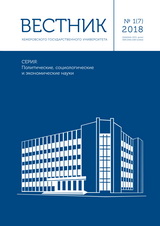One of the current directions of territorial development is the concentration of efforts on competitive regional processes and the shaping of the trajectory of their development. However, not all directions of regional development can be implemented by themselves. The aim of the research is to study the theoretical aspects of agglomeration and the formation of macroregions in a complicated foreign policy situation accompanied by aggravated socioeconomic processes, introduction and expansion of anti-Russian sanctions and other processes destructive for the country’s economy. The main idea of economic agglomeration and macroregions is the development of effective integration processes and synergetic effects, and as a consequence, territorial self-development. The scientific contribution made by the author is that the current study helps to systematize the existing approaches to the concept of agglomeration; the author also shapes an authentic approach to the concept of agglomeration and its construction as well as introduces some methodical aspects of the macroregion formation on the basis of economic agglomeration. The author has developed a conceptual scheme for the creation of a macroregion on the bases of an economic agglomeration that can be applied in the process of regional economic changes. The main conclusions: 1) the main idea of the formation of agglomerations and macroregions is in the development of effective integration processes and synergistic effects; 2) the concept of macroregion does not imply a change in the federal structure, it affects only economic processes; 3) for the construction of a macroregion, it is necessary to study the agglomerate core and the main economic processes that will proved the necessary synergetic effect and launch the process of territorial self-development.
agglomeration, integration, regional economy, macro-region, competitiveness

















